EU: Turkey is on the right path but is still far away. Turkey: the EU is wrong!
Adelina Marini, November 15, 2010
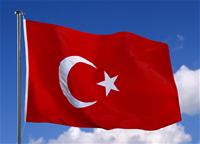 It is very hard after 104 pages to asses whether the European Commission progress report on Turkey's accession to the EU is good for the country or bad. The reason is that in spite of the conclusions in it, nothing follows - neither an opening of the frozen 18 (of all 33) chapters, nor a hint of a probable accession date. Not that someone would have expected this report precisely to make such conclusions, but this is the way to asses whether a report is good or not.
It is very hard after 104 pages to asses whether the European Commission progress report on Turkey's accession to the EU is good for the country or bad. The reason is that in spite of the conclusions in it, nothing follows - neither an opening of the frozen 18 (of all 33) chapters, nor a hint of a probable accession date. Not that someone would have expected this report precisely to make such conclusions, but this is the way to asses whether a report is good or not.
The complicated case of Turkey
In fact the situation with Turkey is much more different than any other country, that has ever headed the long path of EU accession, because the Union itself is not convinced in the necessity a large Muslim country to become a member of its. And the issue is not only in the fact that the country is Muslim but that Turkey had a path of development of its own, quite different, though, than that of most member states. This is where the difference in values and purposes comes from. That Turkey had stated its will to apprehend the European values, still is true. But the work the country still has to do in order to achieve them is enormous and would require time which no one is willing to forecast.
In the same time, however, global processes require a decision and the internal European ones - require patience, especially after the second phase of the fifth enlargement when the EU accepted Bulgaria and Romania for members quite unprepared in many of the areas that are a subject of the accession period.
What has Turkey achieved progress in?
As a serious success the Commission notes in the adopted earlier this year constitutional amendments in Turkey, which practically have an impact on almost the entire report in its "political criteria" part. The reform of the Constitution led to opening, especially with regard to the Kurdish issue, the creation of civil accountancy of the army and broadening of the possibilities for investigation of coup attempts.
Beyond these changes however, the Commission reports a political climate of severe confrontation among the main political parties and the government, as well as strained relations among key political institutions. The judicial system is a subject of heavy criticism because of several important cases in Turkey, mainly related to allegations of military coup attempts - like the emblematic Ergenekon case, in which a group of generals were arrested after broad and fast operations, and accused of coup attempt against the government.
The problem, as assessed by the report, is the big time lapse between the indictments and the investigation, causing concern about effective judicial guarantees for all suspects. In the context of this case is also the general conclusion that in Turkey a serious problem still is the very long pre-trial period. A lot of space is dedicated to overpopulated prisons, caused by many people who expect sentence or a trial, as well as by the bad conditions in prisons.
Again as part of the political criteria the report assesses that, although the 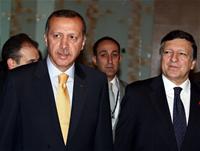 constitutional amendments are a step in the right direction, they did not go far enough to make the closure of political parties more difficult - something which was included in the initial version of the constitutional reform. And one more thing - the reform was not discussed publicly with the participation of civil organisations and all political parties.
constitutional amendments are a step in the right direction, they did not go far enough to make the closure of political parties more difficult - something which was included in the initial version of the constitutional reform. And one more thing - the reform was not discussed publicly with the participation of civil organisations and all political parties.
In general there is progress in reducing army's influence in Turkey's political life. According to the report however, although the cases of political interference have decreased, still the military is exceeding their powers. There is also a problem with the accountancy and transparency in planning the defence budget.
It would probably sound familiar, but Ankara also has problems with the independence of its judicial system. As noted in the report, there is progress with regard to the independence of the High Council and its powers to appoint and fire magistrates. A deficiency however is that still a chairman of the High Council is the minister of justice who has the final word. Turkey continues to have problems with corruption too, especially in the countryside.
As positive is reported the adoption by the government of an anti-corruption strategy for the period 2010-2014, accompanied by an action plan with specific dates and responsibilities. Still there is no progress on limiting the immunity of Members of Parliament concerning corruption-related offenses. More work is necessary on increasing transparency on the financing of political parties and election campaign funding, the report says.
Turkey has a good mark for its work on human rights, civil and political freedoms. In spite of what has been done so far, however, the country still has a lot to work on, as a major element is the disproportionate force the law enforcement often applies. In the section of human rights, civil and political rights the problem with freedom of speech is also mentioned. There the problem is quite serious and requires a lot of efforts.
The report also points out that the high number of cases initiated against journalists, especially those who have reported on the Ergenekon case, is a cause for concern. Journalists are being accused of violating the principle of confidentiality of an ongoing judicial process. This could result in self-censorship. This problem is also addressed by the weekly Economist in its issue of 23-29 October, where the situation in Turkey is the special report of the issue. According to the magazine, a lot of journalists complain that the political atmosphere makes it unwise to criticise the AK party in general and especially the prime minister Recep Tayyip Erdogan. Some practise self-censorship.
A leading example in this sense, mentioned both in the Commission's report and the Economist is the case with the biggest media conglomerate Dogan group. Until 2006 Dogan, which controls the two biggest newspapers in Turkey, Milliyet and Hurriyet, as well as several television stations, had few difficulties with the AK government. But in 2007 the group linked party officials to the diversion of money from a German-based charity. After more unfavourable articles appeared, the group suddenly found itself the object of an unusually vigorous tax inspection, involving as some as 16-18 tax audits in one year, as a source of the magazine says.
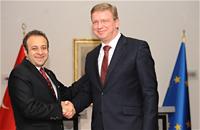 The Economist likens the outcome of the Dogan group case with Hodorkovsky's Yukos in Russia, though Dogan did not end up in jail and managed to pay the constantly increased by the state tax fines. The magazine recalls that in its report from 2009 the Commission heavily criticised the government over Dogan. In this year's progress report the Commission points out that "the court case on the tax fine ordered in 2009 against Dogan Media Group, critical of the government, continues. The press exercises self restraint when reporting following the initiation of this case".
The Economist likens the outcome of the Dogan group case with Hodorkovsky's Yukos in Russia, though Dogan did not end up in jail and managed to pay the constantly increased by the state tax fines. The magazine recalls that in its report from 2009 the Commission heavily criticised the government over Dogan. In this year's progress report the Commission points out that "the court case on the tax fine ordered in 2009 against Dogan Media Group, critical of the government, continues. The press exercises self restraint when reporting following the initiation of this case".
The report also notes the frequent bans of websites, as the most striking is the case with the banned access to the video-sharing website YouTube. The website was officially inaccessible in Turkey from May 2008 to November 2010, after publication of videos which allegedly violated the Law on crimes against Atatürk.
Progress, however, is seen with regard to the freedom of assembly and association. In the same time, civil organisation still face disproportionate administrative checks and fines. And regarding the freedom of religion there is also progress, the report notes.
And concerning the rights of women and children, there are still a lot of problems, of which, however, it is not clear whether they are a responsibility of the government or are deeply rooted in Turkish mentality. For example the report notes that school textbooks still contain stereotypes about women’s role and status. Overall, the legal framework guaranteeing women’s rights and gender equality is broadly in
place, additionally strengthened by the constitutional amendments.
Nonetheless, ensuring women's rights and gender equality in practice remain key challenges for Turkey. "Honour killings, early and forced marriages and domestic violence against women remain serious problems. Legislation needs to be implemented consistently across the country. Further training and awareness-raising on women’s rights and gender equality are needed".
The Kurds
The Kurdish issue is also included in the report, though mentioned briefly. It is included in the political criteria section in the context of minority rights. And again, the government's efforts are noted which, again according to the Economist, is the first government that makes such a significant step toward opening to the Kurds, but it points out in the same time that terrorist attacks have increased. The report recommends more efforts to be invested in solving the Kurdish issue, by starting with amending the anti-terrorist legislation in order to avoid broader interpretation and to improve the situation of human rights in the region and to reduce the disproportionately high number of arrested people, allegedly for terrorist activities.
Although it sounds relatively easy the way it is written in the report, in fact the Kurdish issue approach causes serious internal political tension. Although he demonstrated tough stance and even, in times, autocratism, Premier Erdogan often is subjected to criticism because of his softening toward the Kurds. The main opponents of Erdogan's policy are the military and the nationalists. Another serious problem is the strong centralisation of government. Mayors are being appointed by the central government and some often find themselves in jail because of allegations of sympathy towards the PKK, denounced as a terrorist organisation in the US and Europe, the Economist writes.
Nevertheless, under EU's pressure the government in Ankara has made a lot of concessions to the Kurds by even allowing a 24-hour TV programme in Kurdish language, as well as the teaching of Kurdish for children.
The zero problems with neighbours policy
As appropriate for every country that had reached a serious economic development, Turkey also started turning more significantly to the outside world. After it spent decades buried in its Ottoman complex and trying to build a secular state, oriented to the Western values, in the last few years Turkey entirely changed its foreign policy approach by introducing the "zero problems with neighbours" policy. It was this new type of policy that is causing stronger and stronger voices of concern and fear, both in Europe and the US, that Turkey had taken a path of its own and that the "EU might lose Turkey". For now Turkey denies but the statements that the Turks themselves start losing patience from the decades-long accession process are not rare.
In its progress report this year the European Commission notes that Turkey's alignment with the EU’s common foreign and security policy has continued. "Through its ‘zero problems with neighbours’ policy Turkey made efforts to normalise relations with its neighbouring countries such as Greece and Armenia, Iraq, including the Kurdish regional government, and Syria. Relations with Israel have significantly deteriorated", the report reads further.
The major stumbling block, however, still is the Cyprus case. In spite that the report notes that Turkey supports the negotiations for a solution to the Cyprus problem, it also notes that the country still does not abide to its commitments. "It does not meet its obligation of full, non-discriminatory implementation of the Additional Protocol to the Association Agreement and has not removed all obstacles to the free movement of goods, including restrictions on direct transport links with Cyprus", is written in the document.
Besides Turkey continues to veto Cyprus’s membership of several international
organisations, including the OECD. As positive are reported the improvements of the relations between Turkey and Greece. An interesting moment is that in one sentence it is noted that the relations with Bulgaria have remained positive. Also noted are Turkey's efforts in the Western Balkans.
The economic criteria
Quite expectedly, Turkey's economic performance is with a very good mark in the progress report. The only criticism is against the not very good transparency when planning the budget, as well as the serious external imbalances. Turkey has a problem with the constantly growing current account deficit but instead it has significant success in reducing its public debt and the budget deficit. Inflation, which through the years reached hyperinflation, now is controlled to single numbers. Another problem, as reported by the Commission, is high unemployment as well as the demographic factors which will probably maintain the unemployment levels high. Turkey can boast one of the lowest average population ages (28 years).
This is why the government is advised to undertake additional reforms of labour market and to apply appropriate measures to ensure flexibility and security of the workers. Another important conclusion in the report is that Turkey is a recognised market economy with well functioning legislation, including in the area of property rights. Still a challenge are judicial practices when registering a firm.
Reactions
The major parties in the European Parliament reacted controversially to the  Commission's progress report on Turkey. According to the group of the Socialists and Democrats, Turkey has made significant progress in many areas. However, they criticise the way the constitutional amendments have been adopted. "Constitutional changes adopted recently contain the limitation of the competence of the military court as well as the guarantee of protection of personal data. However, a new constitution resulting from broad consensus in the Turkish society is a pre-condition in order to be in line with European standards", according to a group's statement. Furthermore, it also says that the EU should send a clear message to Turkey, by abandoning its ambivalent speech and assisting the country towards effective EU integration.
Commission's progress report on Turkey. According to the group of the Socialists and Democrats, Turkey has made significant progress in many areas. However, they criticise the way the constitutional amendments have been adopted. "Constitutional changes adopted recently contain the limitation of the competence of the military court as well as the guarantee of protection of personal data. However, a new constitution resulting from broad consensus in the Turkish society is a pre-condition in order to be in line with European standards", according to a group's statement. Furthermore, it also says that the EU should send a clear message to Turkey, by abandoning its ambivalent speech and assisting the country towards effective EU integration.
The Greens on their part state that the EU should demonstrate political will and give Turkey a real membership perspective. "Turkey should rightly be praised for continuing on the path of democratic and constitutional reform, with a view to joining the EU, and it is welcome that today's report acknowledges this real progress", the statement of the Greens reads. The group is not that concerned with the lack of consultations before the constitutional amendments have been adopted but are critical of the fight against terrorism, being pursued with scant respect for human rights and used as an excuse to criminalise any social, environmental, political or cultural activism. Media freedom and freedom of speech are also criticised by the Greens group in the European Parliament.
The Alliance of Liberals and Democrats for Europe were reserved and more or less critical in their assessment of the report. According to the liberals, the reform efforts in Turkey are only in words and this is why they welcome the Commission's clear language with respect to press freedom. "The situation of fundamental rights like freedom of expression and freedom of assembly - basic elements of any real democratic reform, especially from a liberal point of view - are a real cause for concern", is written in ALDE's statement. With regard to the constitutional reform, ALDE says that it has rightly been acknowledged as a step in the right direction but the implementation of the changes are yet to be seen.
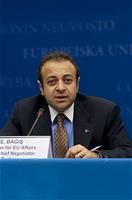 Although the report notes progress on several key issues, the Turkish government criticised it heavily. Turkey's Chief Negotiator with the EU Egemen Bagis said, responding to EUobserver's questions, that the Union was not doing enough to help end the isolation of Turkish Cypriots, was "irrationally" blocking talks on energy co-operation and was "hiding" its real reasons for the slow pace of accession behind Cyprus. Bagis went even further by saying: "The isolations on the Turkish Cypriots should be lifted. [...] If British Airways or Lufthansa or any EU national carrier starts flights to Ercan airport in Northern Cyprus, Turkey would then consider opening her ports to Greek Cypriot planes and vessels".
Although the report notes progress on several key issues, the Turkish government criticised it heavily. Turkey's Chief Negotiator with the EU Egemen Bagis said, responding to EUobserver's questions, that the Union was not doing enough to help end the isolation of Turkish Cypriots, was "irrationally" blocking talks on energy co-operation and was "hiding" its real reasons for the slow pace of accession behind Cyprus. Bagis went even further by saying: "The isolations on the Turkish Cypriots should be lifted. [...] If British Airways or Lufthansa or any EU national carrier starts flights to Ercan airport in Northern Cyprus, Turkey would then consider opening her ports to Greek Cypriot planes and vessels".
In a special TV statement on the occasion of the publication of the report, Prime Minister Recep Tayyip Erdogan was even sharper: "As long as we are not a member of the EU, the EU will not become a global actor. I say this very clearly. The European Union has something missing in it. If Turkey becomes a member of the EU, it will become a bridge between the EU and one-and-a-half billion Muslim people".
The Bulgarian Ministry of Foreign Affairs for now preferred to refrain from 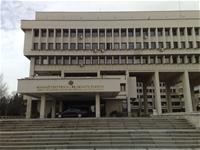 announcing an official position concerning the report. Instead, on November 25 the Ministry in cooperation with the European Commission is organising a conference, at which the entire enlargement package will be presented, including the progress reports of the Western Balkans, Turkey and Iceland. euinside will additionally present to you the key conclusions from these reports in the next few days.
announcing an official position concerning the report. Instead, on November 25 the Ministry in cooperation with the European Commission is organising a conference, at which the entire enlargement package will be presented, including the progress reports of the Western Balkans, Turkey and Iceland. euinside will additionally present to you the key conclusions from these reports in the next few days.
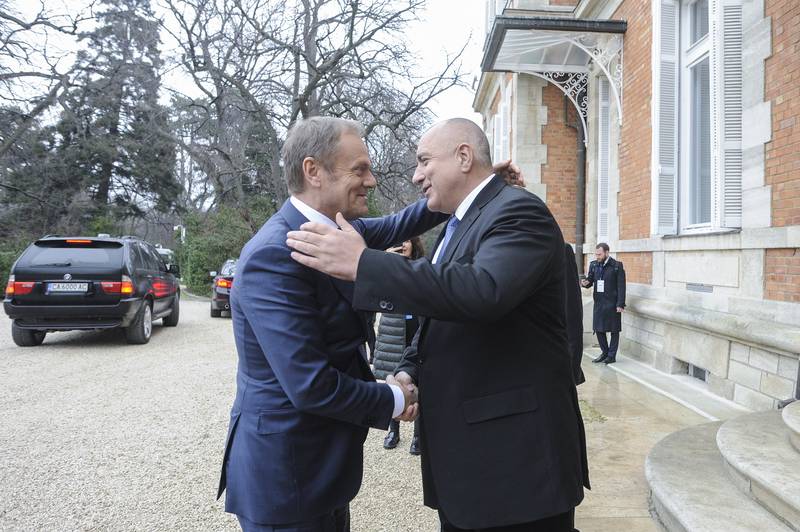 Donald Tusk, Boyko Borissov | © Council of the EU
Donald Tusk, Boyko Borissov | © Council of the EU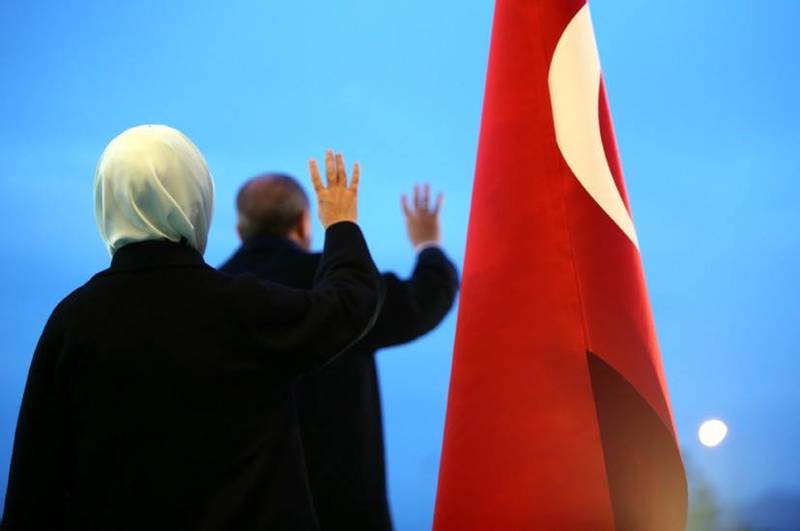 | © Turkey Presidency
| © Turkey Presidency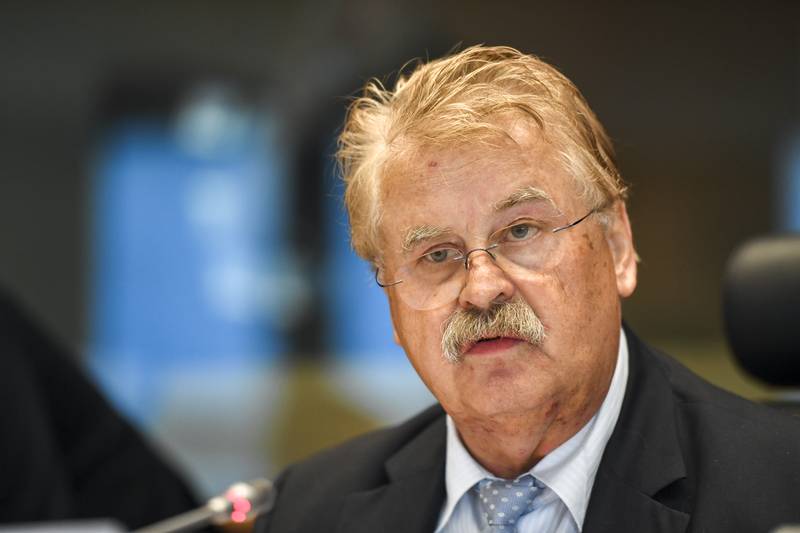 Elmar Brok | © European Parliament
Elmar Brok | © European Parliament